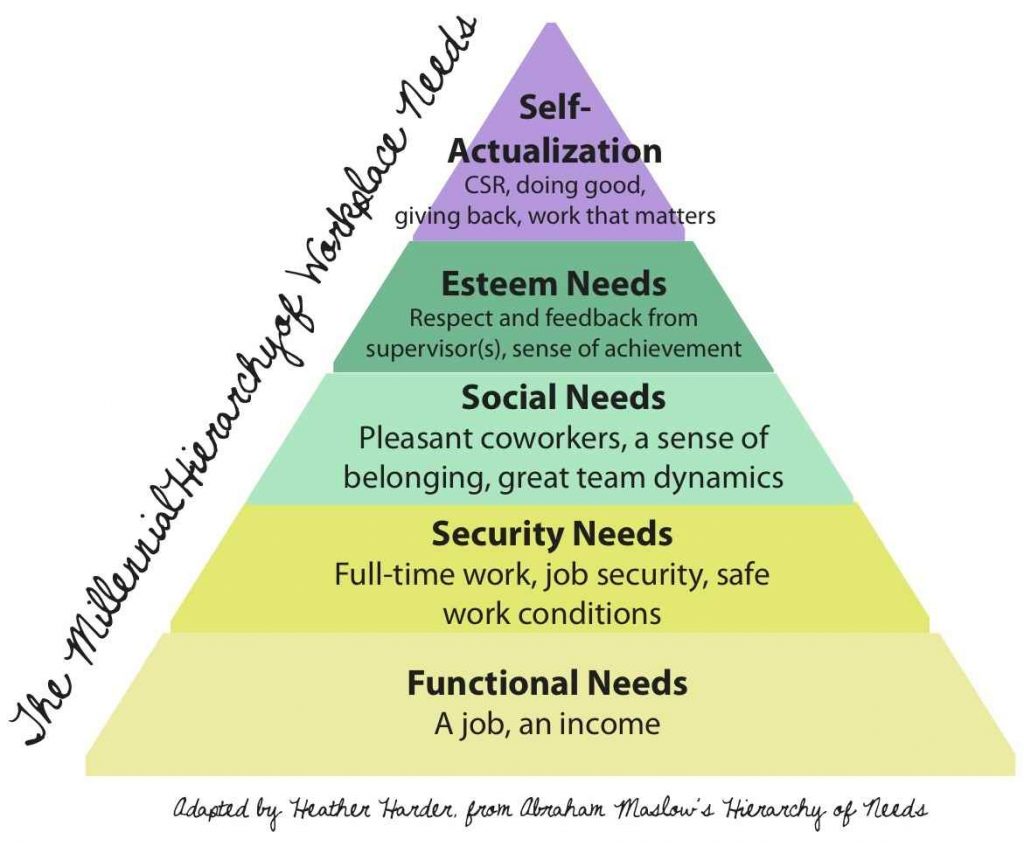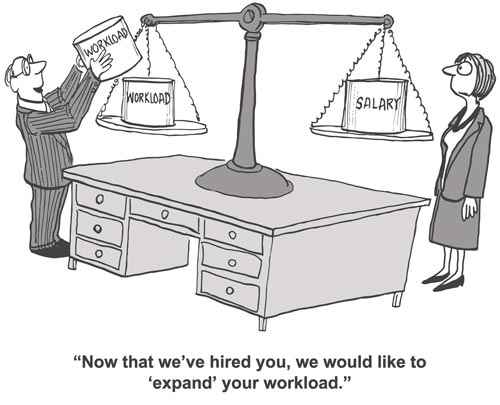The new year is almost upon us and most of us will be thinking about making new year’s resolutions, those promises to ourselves that this year we’ll change all the parts of our life we dislike for the better.
High up on many people’s lists will be to change their job. If your job leaves a sinking feeling in the pit of your stomach every Sunday evening, you’re not alone. According to employee satisfaction surveys, around a third of us dread the working week – yet our jobs play a very important part of our lives.
If you’re pondering over the question ‘Should I quit my job?‘, then we can help. Our experts have come up with 12 questions to ask yourself before you decide whether or not you should move on. Good luck and above all, BE HONEST!
1. Does your job pay the bills?
As a bare minimum, your job needs to be covering your bills and giving you some spare cash to enjoy life. Indeed, according to psychologist Abraham Maslow’s hierarchy of needs (which is presented as a triangle – see below), the most basic needs that work must satisfy in order to motivate us are physiological needs:

If your job doesn’t allow you to pay the rent, put food on the table and enjoy your life to a reasonable degree, it’s time to find another or retrain to improve your earning capacity.
2. Do you have job security?
Alongside being able to pay the bills, you need job security. Without this, you’ll be constantly worrying about whether you can put a roof over your head or care for those you love. If your job is constantly being threatened – either because the company isn’t financially stable or because your boss isn’t psychologically stable – it’s time to start looking around for something new.
3. Is your workplace well organised?

The second tier of Maslow’s triangle is about security needs. Workers need a stable physical and emotional environment with issues such as contracts, rights, policies, benefits, pensions, and fair work practices prioritised. If your company is run like a shambles and your boss laughs in the face of employee rights, it’s time to look elsewhere.
4. Do you get on with your colleagues?
You spend a lot of time at work so a poor relationship with your colleagues is going to impact your wellbeing. Third on Maslow’s triangle is the need for “Belongingness” – this means social acceptance, friendship and the cooperation of other colleagues. If the team alienate you or make you feel unwanted, it may be time to look for something else.
5. How do you feel about going the extra mile?

At some point occasionally all of us have to go the extra mile, whether it’s working overtime, going above and beyond for a customer or taking work home. The question is: how does going the extra mile make you feel? Do you begrudge every second you have to work beyond your contractual hours, or are you happy to chip in because you care how well the business does. If you resent having to do more than the minimum even though it’s only required now and then, it’s probably time to find another position.
6. Do you have a good work life balance?

Most of us spend the best part of every working day at work so it’s vital to have time to ourselves, or with loved ones. If you’re constantly bringing work home and not finding the time to do the things you want to do, it’s time to look for something else.
7. How do you feel on Sunday evenings?
Believe it or not, plenty of people look forward to Monday mornings in the office: it’s a time to catch up with colleagues and enjoy the energy of a new week. Sure, we’d rather be doing something else, but we don’t feel sick at the prospect of going into work; neither do we phone in and pretend to be ill. However, for some of us, the sinking Sunday evening feeling and temptation to play ill for a day off is a tell-tale sign that we should be job hunting for something better.
8. Is your work recognised?
Second from the top of Maslow’s triangle are esteem needs – these include a positive self-image, respect and recognition. Ask yourself:
- Do you have a job title that reflects your role?
- Are you given a pleasant working environment with the tools and equipment or software you need to do your job?
- Are your achievements recognised appropriately?
If these elements are missing from your role, there’s a good chance it’s time for a change.
9. Are your skills used to the full?
Right at the top of Maslow’s triangle are self-actualization needs. These include workplace autonomy, being given challenging work, and being regarded as an expert in certain areas. Ask yourself:
- Does your boss allow you to ‘get on with it’ where you are competent to perform a particular task, or does he/she meddle in the detail?
- Are you given work that challenges you or monotonous work that doesn’t make use of your knowledge, skills and experience?
If you’re not given tasks that use your skills or you’re unfairly micromanaged, you may want to look elsewhere.
10. Are you paid what you’re worth?

Pay is not just about putting food on the table – it’s also about recognition for our value. Sites like Glassdoor allow you to research how much your role is worth in your local area, and find out if your pay is comparable to other companies. If you’re paid significantly less than others in your region it could be time to ask for a pay rise. If your boss refuses to negotiate, you know it’s time to start hunting for a new role.
11. What are your employment prospects?
In today’s difficult job market, it’s always worth taking a calculated look at the likelihood of you getting another role. If your skills are very much in demand and you’re not enjoying your current employment, it makes sense to start looking around for a new position. If, however, there is little demand for what you do – or there are hundreds like you who could fill your position – it’s a good time to think about retraining to give yourself better employment prospects going forward. With so many part time, evening, weekend and distance courses, there’s no need to quit your job just yet.
12. Would you ever do what you do for fun?
This is hands down, the most important question on this list. If your role is something you love to do outside of work (when you’re not getting paid), it’s the perfect job for you. Of course, you might not be at the right company, but at least you know you’ve got the role spot on.
If you wouldn’t consider for a second performing any aspect of your role outside of work, you might want to think about retraining to do something you enjoy more.
So: should I quit my job?
If the above questions have made you realise it’s time to move on, don’t quit just yet. Make sure you have the role you want lined up first before you hand in your resignation. Take the first steps: check out our collection of CV templates and discover the best place to find job vacancies here.
Image source: Pinterest
